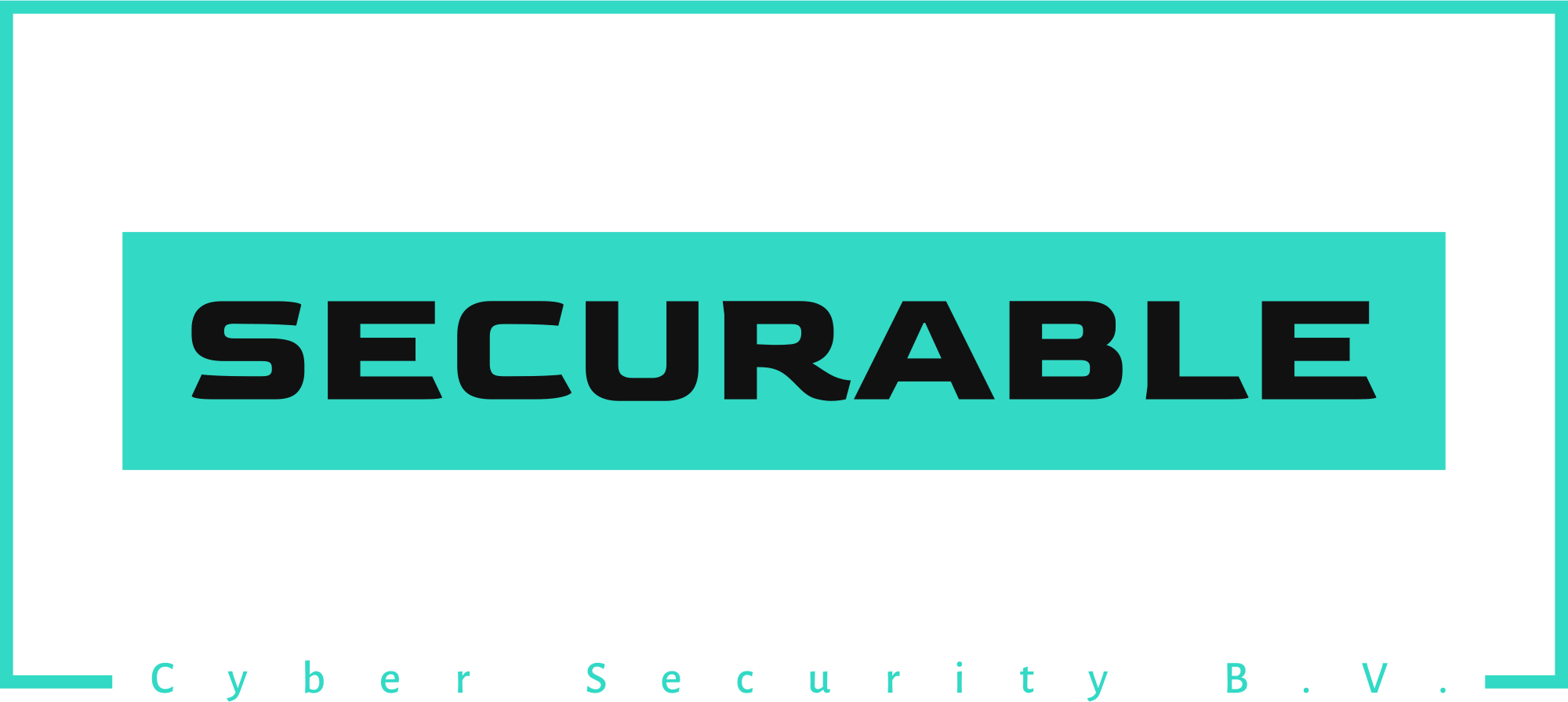Waar te beginnen met cybersecurity voor het MKB ?
Waarom beveiligen?
Wij komen soms bij bedrijven die (nog) weinig of totaal geen cybersecurity-maatregelen hebben genomen. Deze bedrijven lopen een bijzonder groot risico, omdat cybercriminelen zonder weerstand ervandoor kunnen gaan met hun data, de data van hun klanten en die van hun werknemers.
In veel gevallen leidt zo’n aanval tot reputatieschade en rechtszaken, zeker wanneer de klanten van deze bedrijven van mening zijn dat het bedrijf niet alles eraan heeft gedaan om zich tegen deze aanvallen te beschermen. Werknemers en klanten verliezen vertrouwen omdat hun persoonlijke data online wordt gezet bij zo’n aanval. Bovenstaande gevolgen gaan vaak nog lang door nadat de daadwerkelijke aanval is afgelopen.
Redenen om niet te investeren?
De redenen om niet te investeren in informatiebeveiliging zijn uiteenlopend. Hieronder volgen er een paar die wij vaak horen:
– Waar moet ik beginnen ?
– Het past niet in het budget.
– Wij zijn geen interessante prooi
– Maar we hebben toch antivirus
– Dat is niet nodig, we zitten in de cloud
– Daar is nu geen tijd voor
Dit was een greep uit de redenen die wij horen en begrijpen. Maar voor al deze redenen zijn alternatieven en dit beveiligen kan en hoort gelaagd te worden aangepakt.
Dus waar te beginnen?
Verreweg de meeste datalekken vinden plaats met gebruik van een menselijke aanvalscomponent. Wanneer u investeert in de digitale weerbaarheid van uw personeel, krijgt u meer grip op uw data en die van uw klanten. Zo kunnen uw medewerkers eerder aanvallen onderkennen en beter omgaan met uw data. Deze trainingen kunnen op uw bedrijfslocatie plaatsvinden en vaak tegen een aantrekkelijk budget.
Beperkt toegang tot uw belangrijke data. Het klinkt heel logisch, maar hoeveel van uw medewerkers kan zonder toezicht bij gevoelige data ? Vaak wordt er een (tijdelijke) maatregel getroffen, zodat een medewerker inzage heeft tot data waar zij/hij eigenlijk niet zomaar toegang toe zou mogen hebben. Zorg dat er (geautomatiseerd) toezicht is wie er toegang heeft tot welke data en wie wat heeft geraadpleegd.
Zorg dat er goede procedures zijn omtrent veiligheid: wanneer krijgt iemand bijvoorbeeld toegang tot uw bedrijfspand en gebeurt dit onder begeleiding ? Hoe vaak wordt er een backup gemaakt van uw data en hoe en wanneer worden deze backups getest ?
Zijn de authenticatiemiddelen die nu worden gebruikt veilig ? Is er sprake van multifactorauthenticatie of wordt er alleen van een wachtwoord gebruikgemaakt. Voldoen de wachtwoorden die gebruikt worden aan de complexiteitsstandaarden en wordt dit continu bekeken ?
Waar gaan uw logs van uw systemen naartoe, zijn deze centraal en op het juiste niveau ? Zonder deze logs is er niet na te gaan wat er gebeurt op uw systemen.
Cybersecurity-budget
Het is misschien een open deur, maar voorkomen is altijd goedkoper dan genezen. Wanneer we kijken naar een Nederlands rapport uitgevoerd door Datto dan zien we dat: “Nederlandse mkb-bedrijven stellen 21% tot 30% van het totale IT-budget ter beschikking aan cybersecurity” en “Meer dan een derde (34%) van de Nederlandse mkb-bedrijven verwacht volgend jaar een stijging in het security-budget”.
We kunnen gelukkig dus stellen dat cyberveiligheid steeds meer de aandacht krijgt die het nodig heeft. Welk budget er past bij uw business is helemaal afhankelijk van in welke markt u opereert en waar u staat met uw informatiebeveiliging.
Conclusie
Er zijn heel veel punten waar u aan moet denken en bovenstaand is maar een greep uit een veel grotere groep van belangrijke beveiligingsstappen. Wij kunnen ons voorstellen dat dit geen punten zijn waar u of uw organisatie zich elke dag mee bezighoudt. Wij raden aan om bij uw bedrijf een “security assessment” uit te voeren. Er zijn legio cybersecurity-bedrijven die dit voor u kunnen doen. U krijgt hiermee meestal een goed inzicht in hoe de cybersecurity van uw bedrijf er nu voorstaat. U kan op basis van zo’n rapport ook meteen een stappenplan maken voor de toekomst en zo controle te krijgen en te behouden over uw data en die van uw klanten. Securable zet graag met u de volgende stap naar een (nog) betere digitale weerbaarheid.
